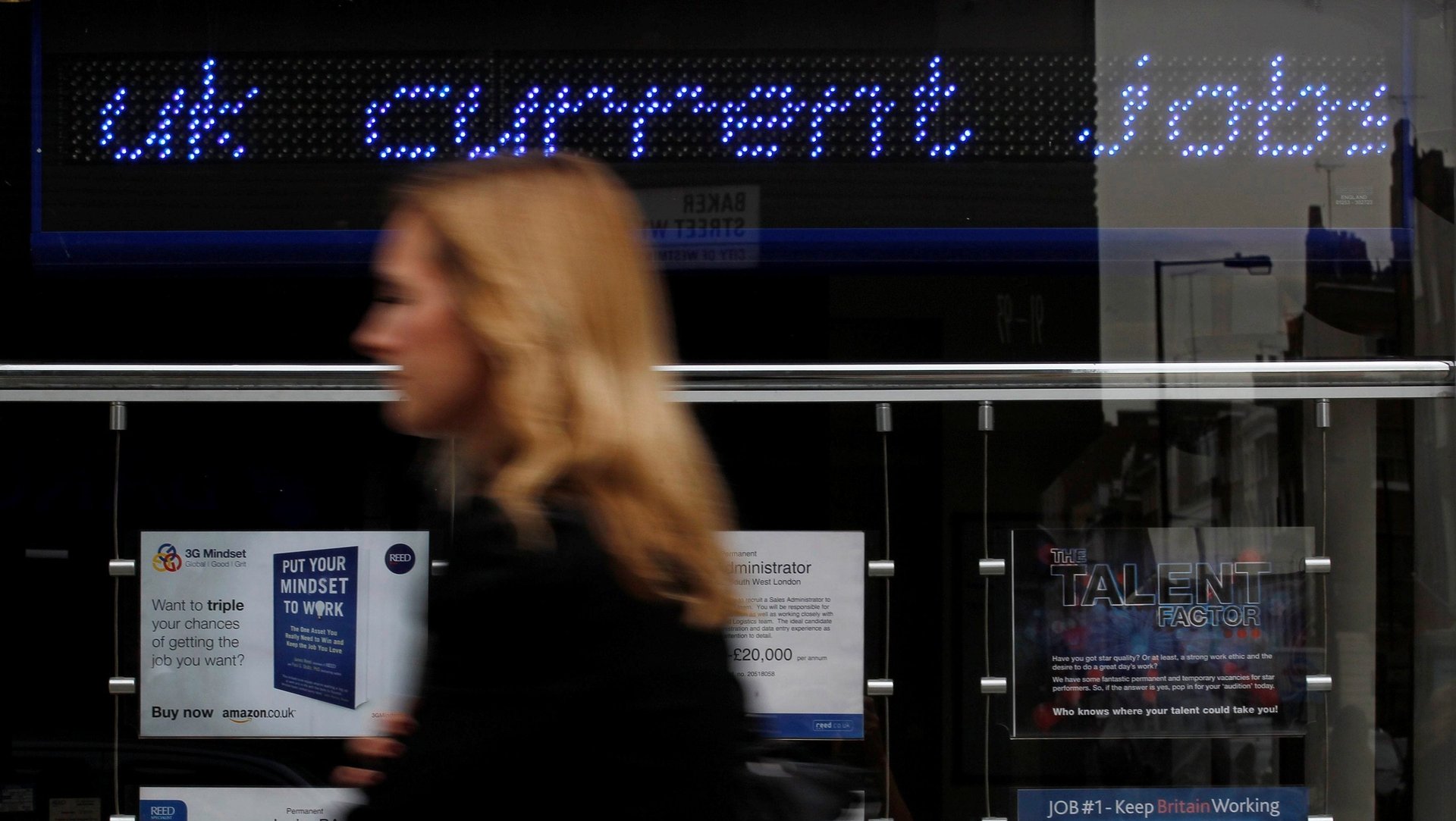The good news is British workers are getting raises. The bad news is Brexit.
UK workers today (Dec. 11) just received their best jobs news in some time: their average weekly pay rose by 3.3% in the three months to October, the largest increase since the 2008 financial crisis. When adjusted for inflation, that number drops to a smaller—though respectable—1.1%, a pace last achieved in 2016.


UK workers today (Dec. 11) just received their best jobs news in some time: their average weekly pay rose by 3.3% in the three months to October, the largest increase since the 2008 financial crisis. When adjusted for inflation, that number drops to a smaller—though respectable—1.1%, a pace last achieved in 2016.
But the good news follows a warning issued on Monday that up to 750,000 people could lose their jobs if the UK leaves the EU at the end of March without a withdrawal agreement in place. This scenario, unthinkable on many levels, is nonetheless one the country is preparing for as prime minister Theresa May struggles to win backing for her Brexit agreement.
The UK’s 4.1% unemployment rate is at its lowest level in more than four decades, according to data from the Office for National Statistics, and is in part what’s driving British employers to bump pay levels. But a joint analysis by the UK Trade Policy Observatory and the University of Sussex warned that a “no-deal Brexit” could erase much of that positive news. Such a scenario would likely cause the British pound to dip even further, and inflation to rise, cutting into real wages, which have only recently started recovering after a Brexit referendum-induced setback.
Brexit is also likely to exacerbate the UK’s extraordinary wealth gap where, despite being the fifth-richest country in the world, more than one-fifth of the population lives in poverty.
The public seems to understand this, at least on a gut level. Survey results by polling firm ORB published this week found that 59% of Brits surveyed disagreed that May’s withdrawal agreement was good for the UK, compared with 21% who agreed. And almost half of respondents didn’t think that Brexit would make them better off financially.